Trying to fit in is part and parcel of the human experience. Wanting to be part of a group while having a unique identity is hard; it is even harder to embrace your culture when you are part of a global diaspora. Although the exact numbers are heavily disputed, about two to four million Iranians live outside of their native homeland. Moná Kiani is part of the great Persian diaspora and now calls Australia home. Her passion for her culture and language took time to cultivate; the importance of it didn’t resonate with her until she gave birth to her son. Realizing that there were few resources to help bilingual families and longing to return to her roots, she took matters into her own hands and founded Englisi Farsi out of necessity. We wanted to learn more about this incredible pursuit and how everyone everywhere can learn Persian, and even with practice, pass it on.

You have created something very unique from your own experience as a Farsi school dropout. Tell us about your own journey learning Farsi as part of the Iranian diaspora.
I never lived in Iran, despite having Iranian parents. I was born in Taiwan and raised in Australia. My parents had a very strong Iranian identity and were very adamant that my siblings and I were exposed to our heritage whether we liked it or not. Through uninhibited Bandarí dancing, music and food, I was inadvertently taking it all in despite my teenage protests. All I wanted was to integrate into life with my Australian friends. No weird second language, growing your own herbs in the yard, no kaleh pacheh, no rounding up sheep at the farm and making torshí. I always envied my friends packed lunches at school. All I wanted was a peanut butter sandwich. Instead, we ate nún o panír bá sabzí and always brought our own tea leaves [cháí] with dates [khormá].
Fast forward a decade later, I finished my university education, like all other obedient Iranian kids, as *insert surprise face* a pharmacist. I met my husband and settled down. Next thing I know, I’m six months pregnant and realise I can’t read and write in Persian! I was hit with a wave of guilt. How am I going to read bedtime stories to my baby when I’m illiterate in my mother tongue. The very heritage I denied and resisted in my teens was all I wanted to speak to my baby. The urge was overwhelming. I can’t really describe it but it was like a deep yearning and regret.
Searching the recesses of the internet, I didn’t find any relatable dynamic and fun resources that met my needs as an Iranian that never lived in Iran. So I set about trying to find a system for transliteration (phonetic transliteration of Persian words in the Romanised alphabet, coining the term Finglisi). The inner pharmacist in me required a consistent and systematized way to categorize each letter and corresponding sound. I had to go back to basics and really rethink how Persian is learned and taught. It didn’t suit my Westernised brain. The order, the rules – they didn’t make sense to me. That’s how it all started. Necessity is the mother of all invention, and really it was motherhood that sparked the flame of curiosity for me.
Describe your journey as a rockstar entrepreneur.
Ah a rockstar – you are too kind. Far from it. Just a mother on a mission. I really despised Persian classes and complained rather loudly every time my mum would announce it’s Saturday and time for Persian school. I dreaded it. I am here to admit to you that I am in fact a Farsi school drop out. My heart would break if my son felt the same way that I did. I wanted to reinvent how my kids learn Persian. To gauge their interests and weave it into our daily lives. To ensure they learnt while we were talking, cooking, playing or down at the beach. Creating an atmosphere of play surrounding the learning that wouldn’t make it a chore but a delight.
Englisi Farsi started as a way for my son and I to learn Persian. God works in mysterious ways. Had I known how hard this journey would be, I may not have traversed the calls of self-publishing to begin with. That’s the challenge of being the chief enthusiast of any project. It’s all on you. There are no shortcuts, and the hardest part is that you set the pace so the battle is always an internal one. Collaborating with like-minded parents, grandparents, aunties and uncles, fortuitous meetings, social networking and loving encouragement from my spouse all culminated in the success of this initial venture. It is invigorating as much as it is demanding! Juggling full-time mum work (with my two children), while innovating new topics and methods for education, is taxing. However, the process has taught me so much and yes, now I can read Persian books. I achieved my goal and I am very grateful for how I was able to mature through this process.
What inspires you to continue to celebrate your Persian heritage?
Along with Bahá’í Faith, my grandparents, parents and two children. Plus, meeting inspiring Iranians all over the world. Every day I get messages from all over the world that revitalize me and keep spurring me on. I see the incredible mark Iranians are all leaving on the human canvas and I love seeing their positive contributions to the world.
What advice would you give to mixed families that are struggling with language and identity?
I would suggest using the three main keys. Firstly, keep it simple and start with what you know.
Secondly, keep it consistent and don’t give up. It won’t be easy but it will be worth it. Lastly, depending on the family of origin, whether grandparents, aunties and uncles. They can be an incredible source of experience and wisdom. Listen to their stories, look at old pictures, and eat the delicacies. These cultural nuances are not written or recorded. They are passed down with real-life experiences, stories and culinary prowess.
Why do you think there are so few resources in Western countries to learn Arabic and Farsi?
From my personal observations, I have noted that newly migrated families are eager to integrate and immerse themselves into the country that they first immigrate to, which is actually an incredible sacrifice and very forward thinking of those that have assimilated so well into their lives outside of Iran. From what I have observed, many families post-revolution were functioning in survival mode, and so many of the first generation Iranian diaspora were more focused on excelling in their second language (usually English) if they immigrated to Canada, the United States, the United Kingdom or Australia. It seemed that many families were worried that opportunities would be closed to them if their children didn’t master the language of the land in which they resided.
Several decades later, with many of the first and/or second generation diaspora starting their own families, they started to realise what they were missing – myself included. Since starting Englisi Farsi over five years ago, I have seen a steady surge in Iranians (mixed or full), filled with a desire to wholeheartedly embrace their heritage and seek it out in all its beauty and uniqueness.
What are your future plans for Englisi Farsi?
So many plans. We have six books being released very soon – The Persian Alphabet, Colours, Shapes, Let’s Talk, Insects & Vehicles. That’s in addition to our current printed titles Animals, Fruit, Vegetables, Under the Sea and Virtues, with many more in the pipeline. I’m also working on lesson plans for international Persian education, to implement early learning through play. With the aid of our resources, music, cooking, dance, and positive parenting strategies, I hope to make this accessible for anyone who is interested to help their children learn Persian through activities of daily living as part of early learning in the home. Language is a mighty instrument, and I want Englisi Farsi to be a source of strength and empowerment for the Iranian diaspora who want to pass on their unique heritage.
Rapid-Fire Questions:
Mascara or fake lashes? Fake lashes
Silver or gold? White gold
Describe yourself in a hashtag. Maybe #ShePersisted #edámehdád
What is your spirit animal? Tiger
Favourite Persian meal? My mum’s lúbíá polo with sáláde shírází. I know it’s not the fanciest of Persian dishes but it reminds me of home.
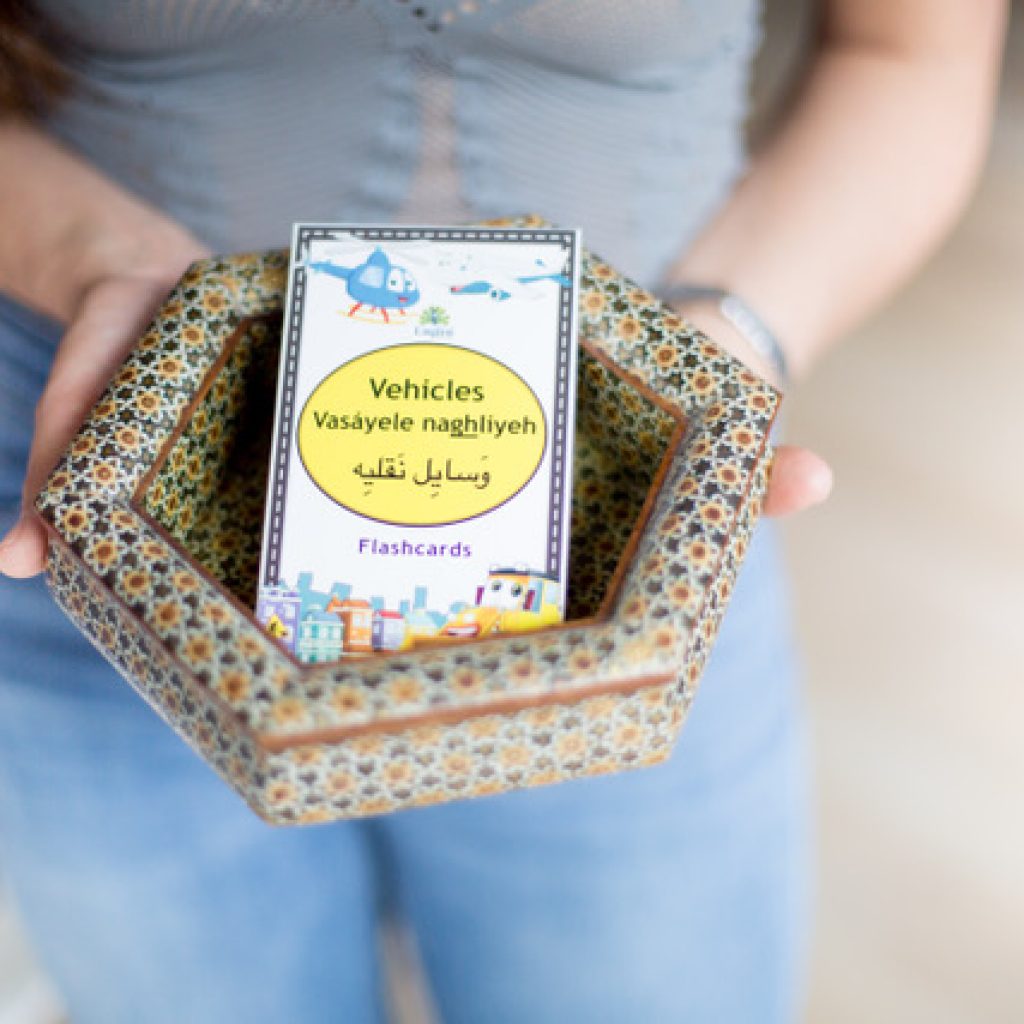
https://englisifarsi.com/

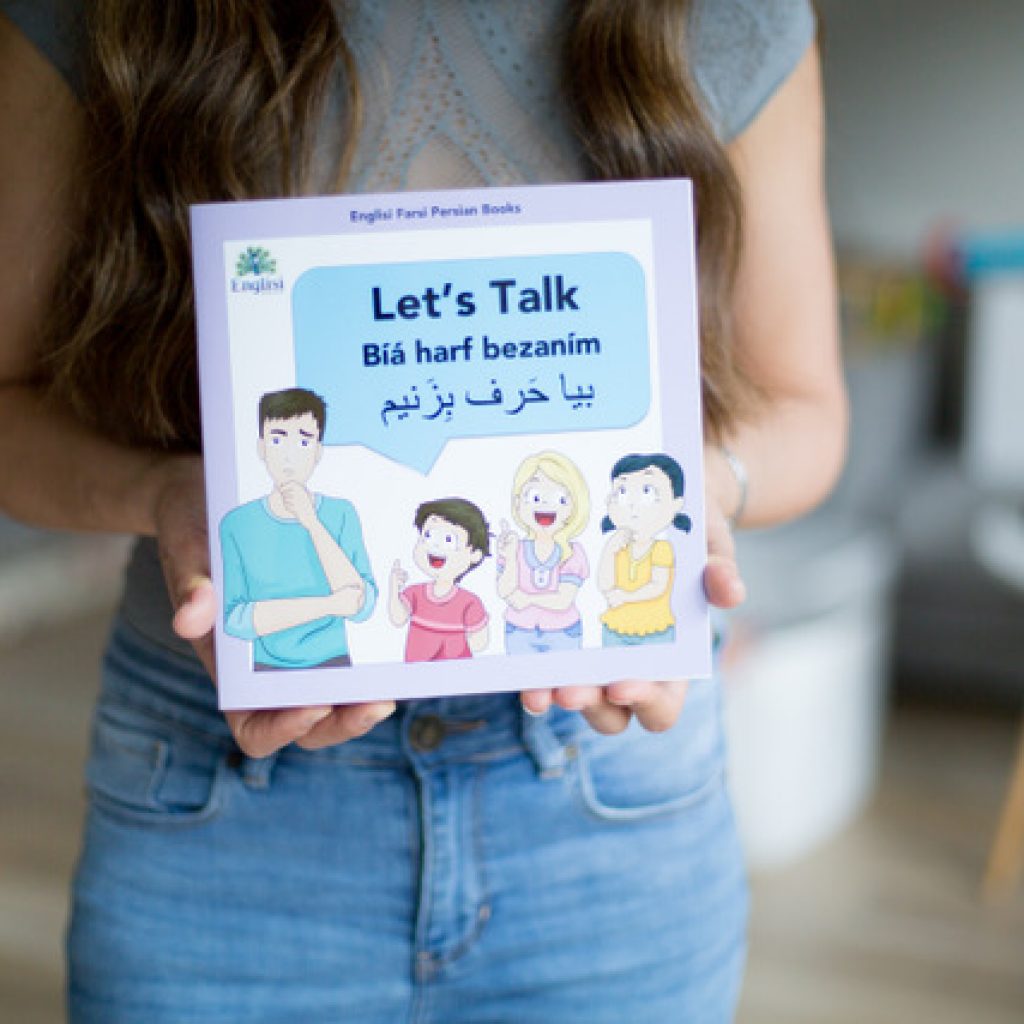
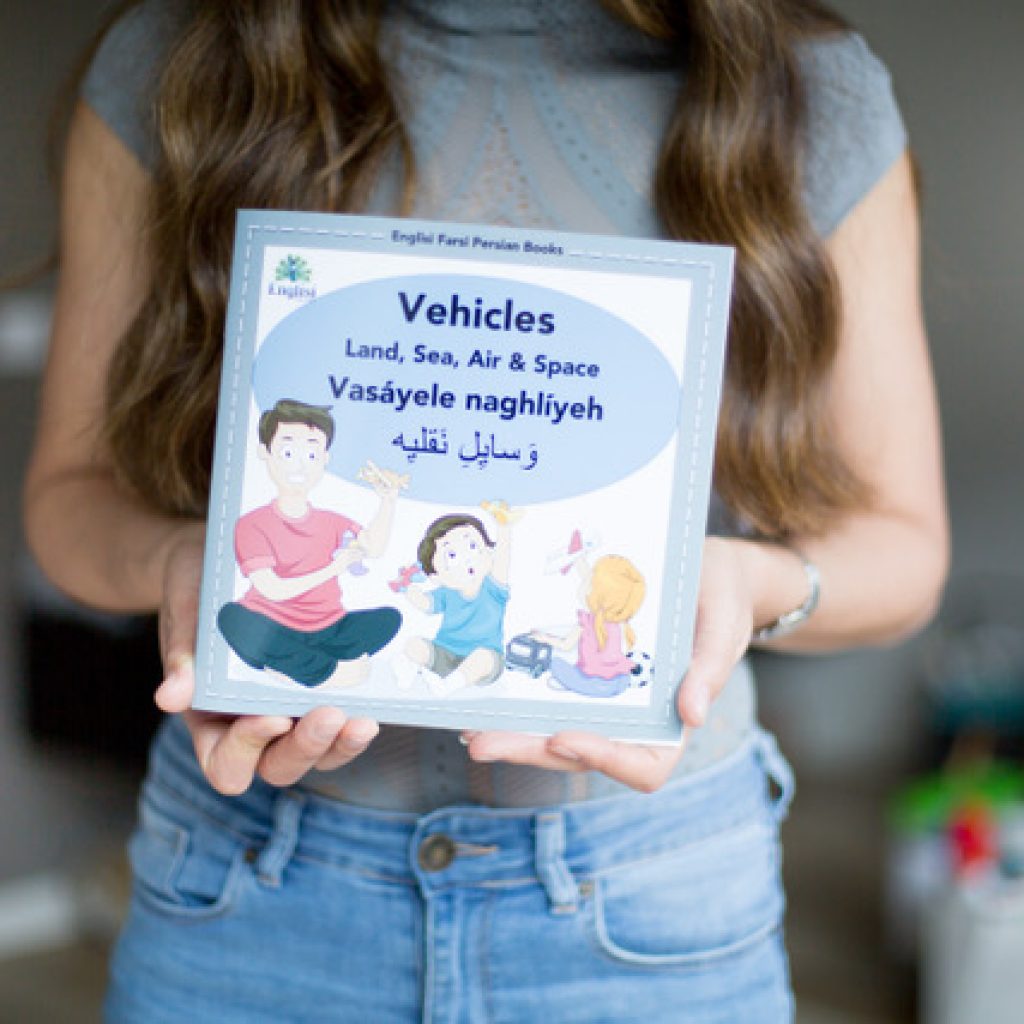
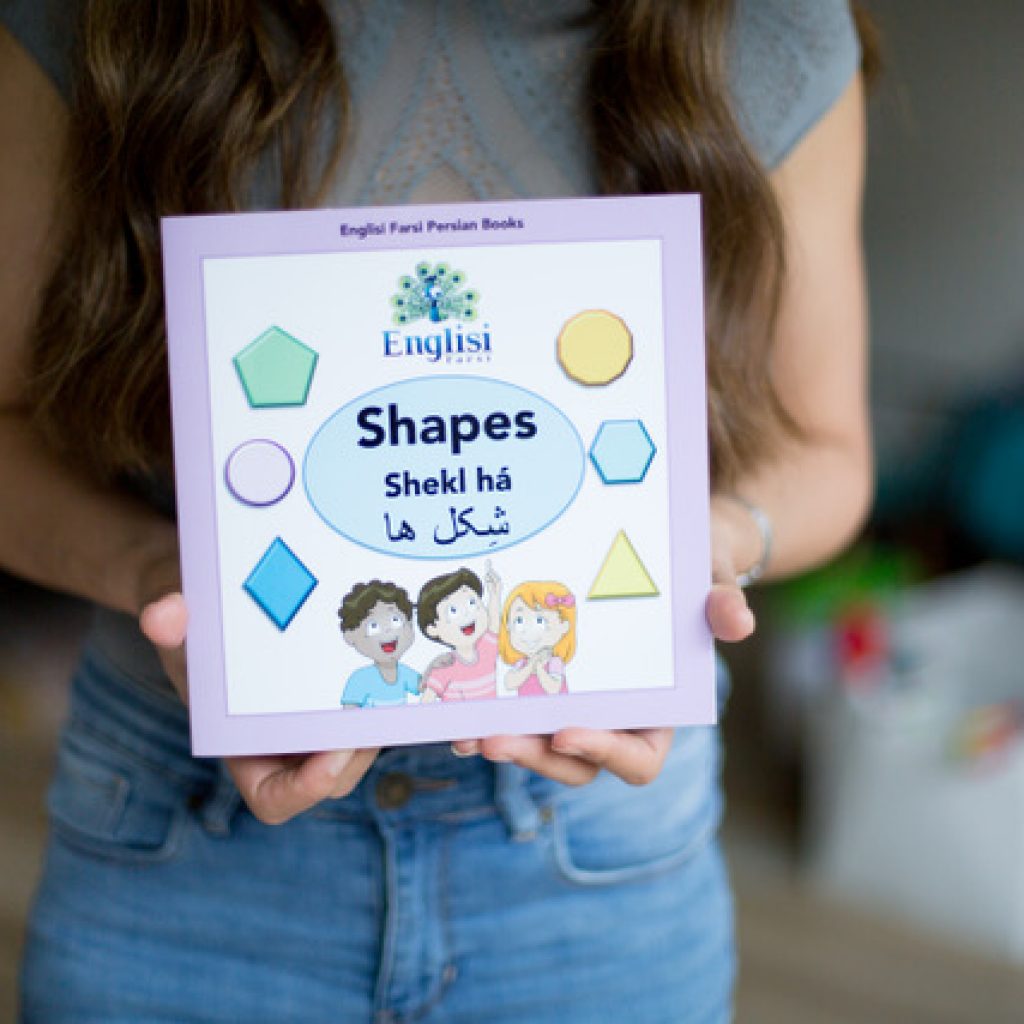
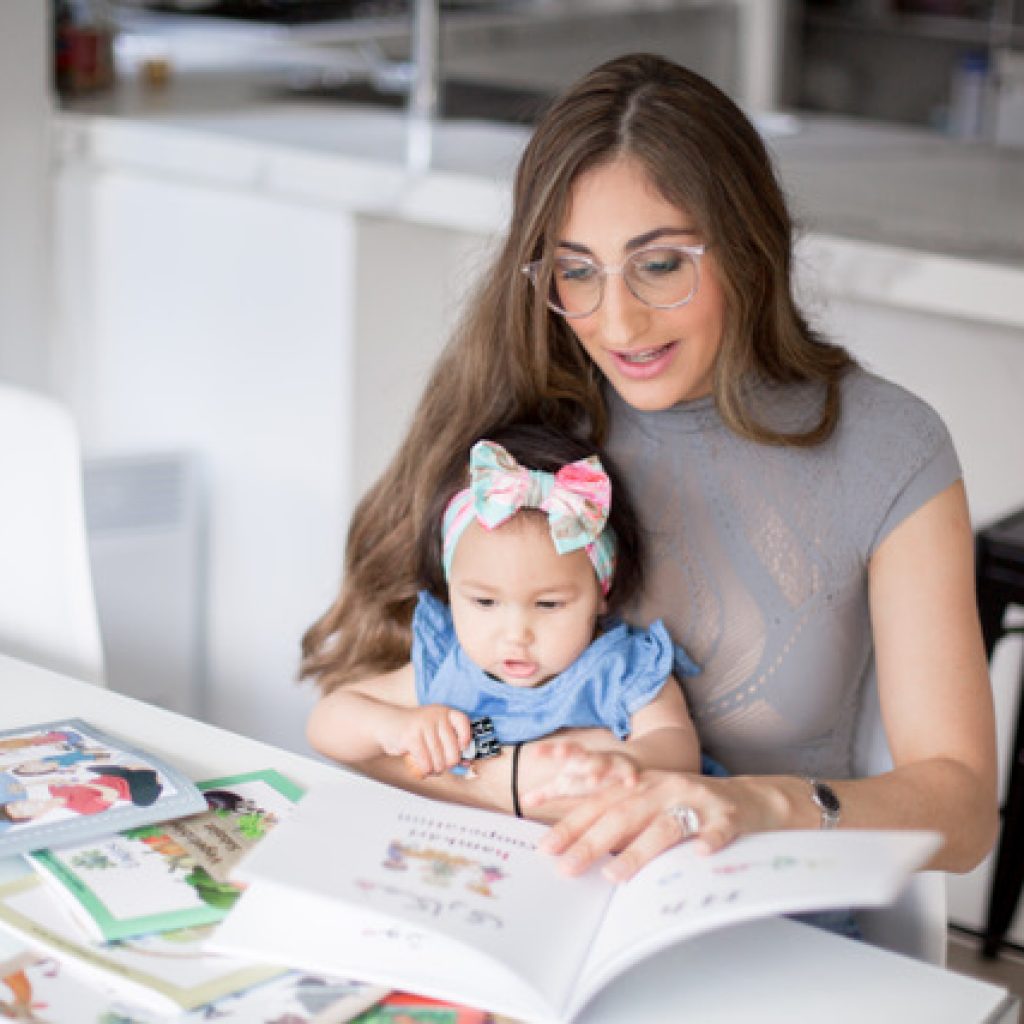


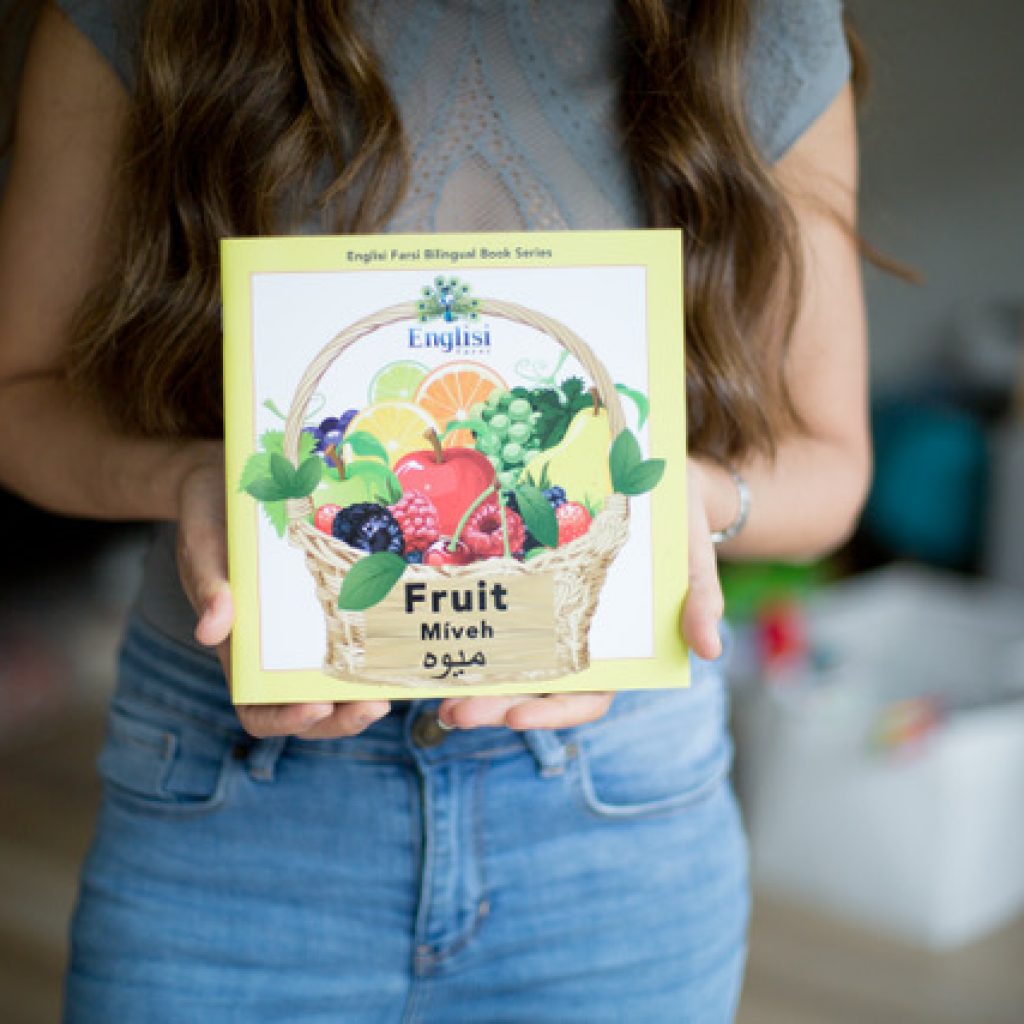
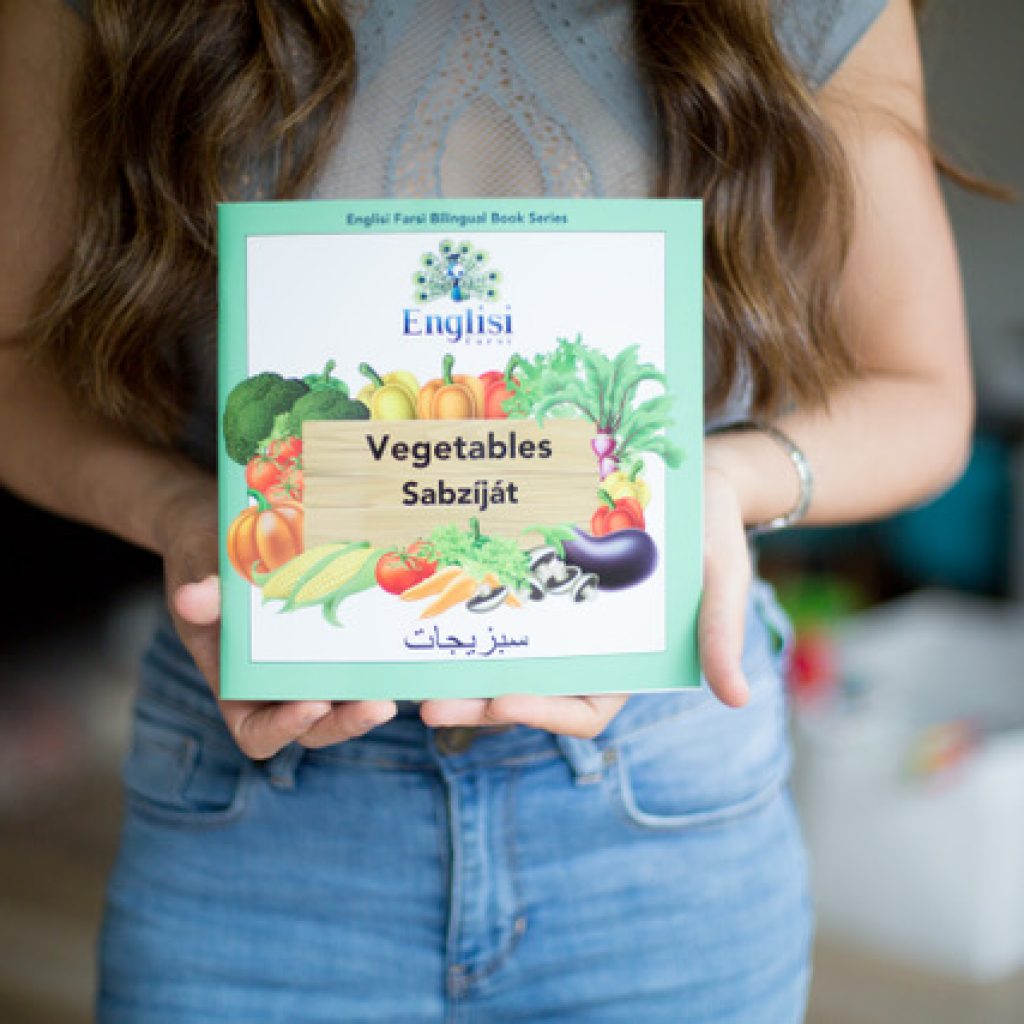
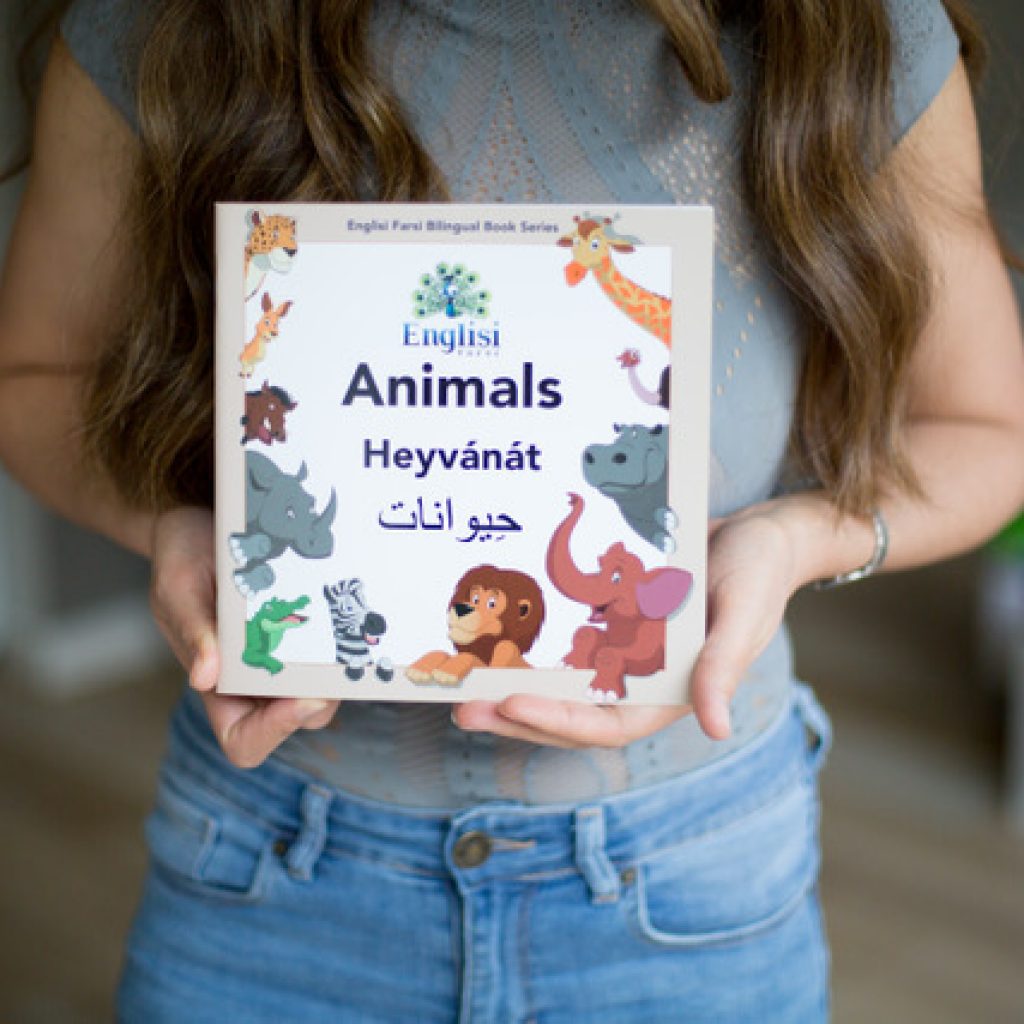
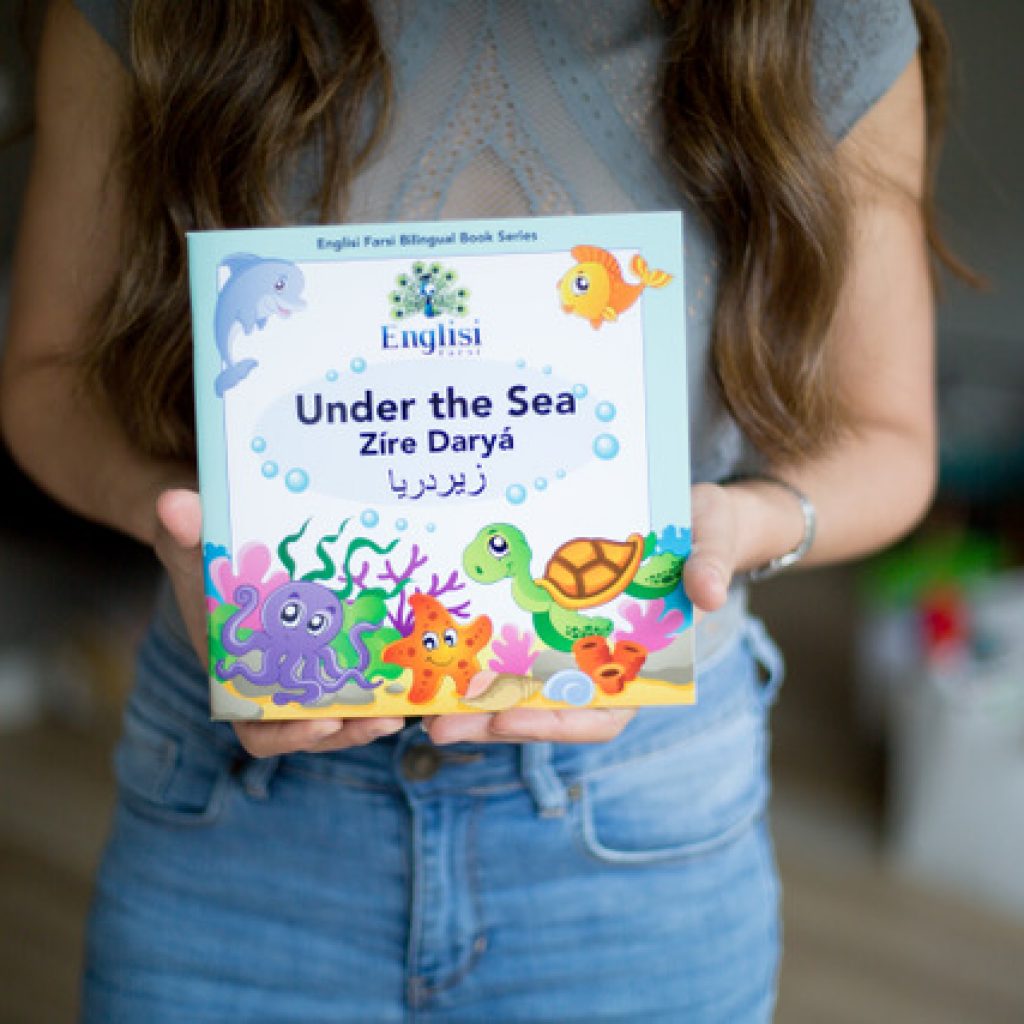



1 comment
Yay, Mona Joon! So very proud of what you’re doing for Persian parents and their children in the diaspora! ( You don’t remember me – I was there when you were born 👶).